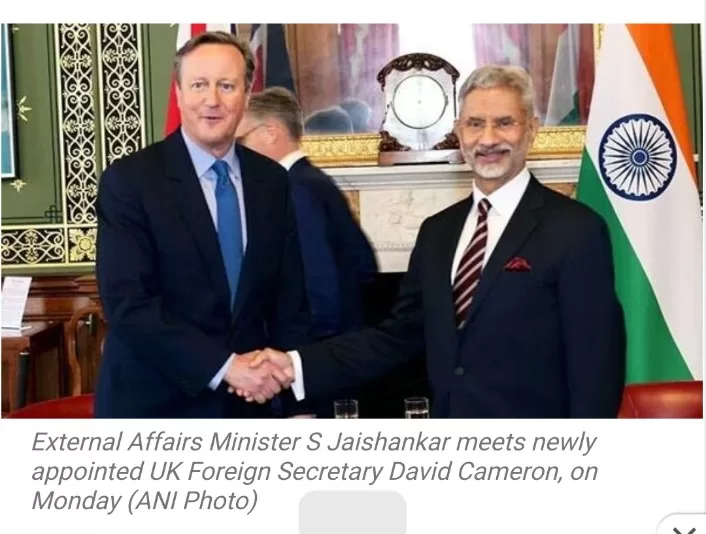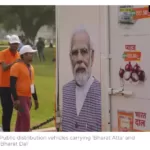In the latest diplomatic development, the External Affairs Minister, S Jaishankar, presently on an official visit to the United Kingdom, engaged in a strategic discourse with the newly appointed UK Foreign Secretary, David Cameron, on November 13. This meeting transpired subsequent to a noteworthy cabinet reshuffle, which saw the unexpected return of Cameron, a former two-time UK prime minister, to the political arena.
While a comprehensive statement detailing the deliberations was not immediately released, Jaishankar conveyed through social media that the discussions encompassed the Ukraine conflict and the “situation in West Asia,” alluding to the ongoing Israel-Palestine dispute. Furthermore, the discourse touched upon the dynamics of the “Indo-Pacific,” as implied in the Indian foreign minister’s communication on the X platform.
Expressing his sentiments on the encounter, Jaishankar tweeted, “A pleasure to meet UK Foreign Secretary @David_Cameron this afternoon on his first day in office. Congratulated him on his appointment. Held a detailed discussion on realizing the full potential of our strategic partnership. Also exchanged views on the situation in West Asia, the Ukraine conflict, and the Indo-Pacific. Look forward to working with him closely.”
Amid the intensifying conflict between Israel and the Palestinian militant group Hamas, both India and the UK have refrained from explicitly calling for an immediate ceasefire. Instead, they have advocated for the de-escalation of violence in the besieged Gaza Strip and the adherence to international law.
On October 28, India was among the 45 nations that abstained from voting on a United Nations resolution urging an immediate ceasefire in Gaza. In contrast, the UK was among the 14 countries that opposed the resolution, with a total of 120 countries voting in its favor. However, both India and the UK supported a UN resolution on November 9 condemning “Israeli settlements in the Occupied Palestinian Territory, including East Jerusalem, and the occupied Syrian Golan.”
This diplomatic interaction reflects the nuanced stance adopted by India and the UK on the complex geopolitical issues affecting the West Asian region and beyond.




